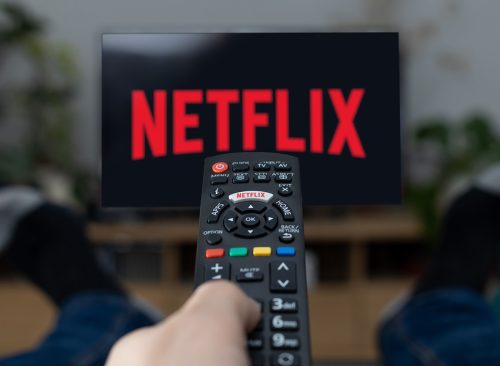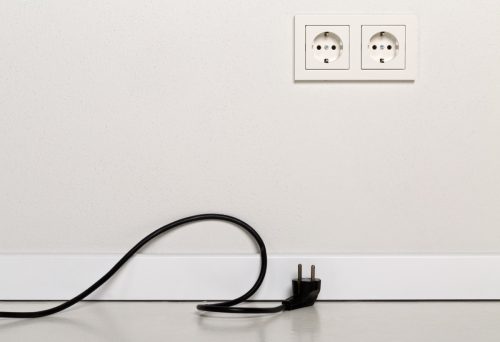21 Great Ways to Save as Expenses Rise
Finding ways to save money has become increasingly important

As the cost of living continues to rise, finding ways to save money has become increasingly important. Managing expenses and maintaining financial stability can be a challenge, but with the right strategies, it is possible to navigate this landscape successfully. In this article, we present 21 great ways to save money as expenses rise. These practical tips cover various aspects of daily life, from budgeting and shopping smart to reducing utility costs and embracing DIY solutions. Whether you're looking for short-term savings or long-term financial changes, these strategies can help you cut expenses without compromising your quality of life. By implementing these tips, you can take control of your finances and build a more secure financial future. So, let's dive in and discover how to save money effectively in the face of rising expenses.

Creating a budget and diligently tracking your expenses is essential to gain control over your finances. Start by evaluating your income and fixed expenses, then allocate a portion for savings and discretionary spending. To simplify the process, consider using online budgeting tools or mobile apps like Mint or You Need a Budget (YNAB). These tools can provide a clear overview of your financial situation and help you make informed decisions.

One of the easiest and most effective ways to save money consistently is by setting up an automatic transfer to a dedicated savings account. By scheduling regular transfers each month, you'll ensure that a portion of your income goes directly into savings without any effort on your part. This approach eliminates the temptation to spend the money and allows you to build your savings effortlessly over time.

Before making any purchase, take the time to compare prices, use coupons, and look for sales. Online price comparison websites and browser extensions like Honey can help you find the best deals across various retailers. Additionally, consider signing up for newsletters or loyalty programs that offer exclusive discounts. Remember, a little extra effort in researching prices can lead to significant savings.

Take steps to cut down on your energy bills by implementing energy-saving practices in your home. Start by using energy-efficient appliances, switching to LED light bulbs, and turning off lights when not in use. Adjusting your thermostat by a few degrees can also make a noticeable difference in your heating and cooling costs. By being mindful of your energy consumption, you can save money and reduce your environmental impact.

Eating out can be a significant drain on your budget. By preparing meals at home, you can save a substantial amount of money. Start by planning your meals for the week, making a shopping list, and buying groceries in bulk. Cooking in batches and using leftovers creatively can save both time and money. Consider exploring new recipes and cooking techniques to make the experience enjoyable and budget-friendly.

Another way to save money on food expenses is by packing your lunch for work or school. Eating out every day can add up quickly, so invest in reusable containers and fill them with homemade meals or snacks. Not only will you save money, but you'll also have better control over the nutritional value of your meals. Packing your lunch allows you to make healthier choices while keeping more money in your pocket.

The cost of transportation, including gas, parking fees, and maintenance, can be a significant expense for many individuals. Consider alternatives to driving alone, such as carpooling with colleagues or using public transportation. If possible, biking or walking short distances can also save money and contribute to a healthier lifestyle. By reducing your reliance on personal vehicles, you can lower transportation costs and even help reduce traffic congestion and air pollution.

Cable TV subscriptions can be expensive, especially with the availability of more affordable streaming services. Consider switching to streaming platforms like Netflix, Hulu, or Amazon Prime Video, which offer a wide range of entertainment options at a fraction of the cost. Additionally, many networks and channels offer free streaming of their shows and movies online, allowing you to enjoy your favorite content without the hefty cable bill.

Learning basic repair and maintenance skills can save you a significant amount of money over time. Instead of hiring professionals for small household repairs or routine car maintenance, try tackling these tasks yourself. With the abundance of online tutorials and DIY guides available, you can acquire the necessary knowledge and skills to handle a variety of common issues. By becoming more self-reliant, you'll not only save money but also gain a sense of accomplishment.

Gym memberships can be costly, especially if you rarely find time to utilize the facilities. Instead of investing in an expensive membership, explore free or low-cost alternatives. Exercise at home using bodyweight exercises, free workout videos available on platforms like YouTube, or fitness apps. You can also engage in outdoor activities like jogging, cycling, or hiking, which not only save money but also allow you to enjoy nature and fresh air.

Many electronic devices continue to consume power even when they're not in use, contributing to unnecessary energy waste and higher electricity bills. Make it a habit to power down devices and unplug chargers when they're not actively being used. Use power strips with an on/off switch to conveniently disconnect multiple devices at once. By minimizing phantom power consumption, you'll see a reduction in your energy costs.

Insurance is essential for protecting your assets and ensuring financial security, but it's important to review your policies periodically to ensure you have the coverage you need at the best possible price. Contact multiple insurance providers to compare rates and coverage options. Additionally, consider bundling your insurance policies, such as home and auto insurance, to potentially qualify for discounts. Regularly assessing your insurance needs can lead to substantial savings over time.

Branded products often come with a higher price tag, but opting for store-brand or generic alternatives can help you save money without sacrificing quality. In many cases, the quality of generic products is comparable to their branded counterparts, making them a cost-effective choice. Compare ingredient lists and give generic brands a try for items like groceries, medications, and household products. You may be pleasantly surprised by the savings without compromising on quality.

Instead of purchasing new items at full price, consider shopping at thrift stores, consignment shops, or online marketplaces for gently used goods. From clothing and furniture to electronics and books, you can find a wide variety of items in excellent condition at significantly discounted prices. Embrace the thrill of thrifting and enjoy the satisfaction of finding unique treasures while saving money.

With the increasing popularity of subscription services, it's easy to accumulate multiple subscriptions that you no longer use or need. Take the time to review your monthly subscriptions and cancel the ones that are no longer providing value. Evaluate whether you're getting enough use out of streaming services, gym memberships, magazine subscriptions, or any other recurring expenses. By eliminating unused subscriptions, you'll free up money that can be redirected toward savings or other essential expenses.

Impulse purchases can quickly derail your budgeting efforts. Before making a purchase, especially for non-essential items, give yourself a cooling-off period to evaluate whether it's a necessity or a fleeting desire. This practice helps you break the cycle of impulse buying and make more mindful spending decisions. Consider waiting 24 hours or longer before making the purchase, allowing yourself time to assess whether it aligns with your priorities and budget. By implementing this simple habit, you can avoid unnecessary expenses and make more intentional purchases.

Entertainment doesn't have to break the bank. Look for free or low-cost activities in your community, such as local events, art exhibitions, or live performances. Movie nights at home with friends or family can be just as enjoyable as going to the theater, and it allows you to save on ticket prices and concessions. Take advantage of local parks for outdoor activities or explore hiking trails and nature reserves for a budget-friendly adventure. By being creative and resourceful, you can have fun without overspending.

Birthdays and holidays can put a strain on your wallet, especially when it comes to purchasing gifts for loved ones. Instead of buying expensive presents, consider making personalized gifts. Handmade gifts often hold more sentimental value and can be tailored to the recipient's interests. Get creative with crafting, baking, or creating photo albums to show your love and appreciation. Not only will this save you money, but it will also add a personal touch that can make your gift even more meaningful.

Many service providers are open to negotiation, especially when it comes to internet, cable, or phone bills. Take the time to research competitive rates and contact your service providers to discuss better deals or promotions. Highlight your loyalty as a customer and express your willingness to explore other options if necessary. In many cases, providers will offer discounts or reduced rates to retain your business. By being proactive and assertive, you can potentially save money on essential services.

Water bills can contribute significantly to your monthly expenses. Implement water-saving practices to reduce your usage and save money. Install water-saving showerheads, fix leaky faucets promptly, and consider collecting rainwater for watering plants and gardens. Additionally, be mindful of your water consumption by taking shorter showers and only running full loads in the dishwasher and washing machine. By conserving water, you not only reduce your utility bills but also contribute to the preservation of this precious resource.

While energy-saving upgrades may require an initial investment, they can result in substantial long-term savings. Consider upgrading your home with energy-efficient windows, improved insulation, or LED lighting. These improvements can help regulate indoor temperatures, reduce energy waste, and lower your utility bills. Look for government incentives, grants, or tax credits that may be available to offset the initial costs. Over time, the savings from reduced energy consumption can outweigh the upfront expenses, benefiting both your wallet and the environment.
In the face of rising expenses, finding ways to save money is crucial for financial stability. By implementing these 21 strategies, you can make significant progress in managing your expenses and building a solid financial foundation. Remember, it's the combination of small changes and consistent effort that leads to substantial savings over time. Embrace these tips, adapt them to your lifestyle, and take control of your finances. By being proactive and resourceful, you can navigate the challenges of increasing expenses and pave your way to a more secure financial future.














